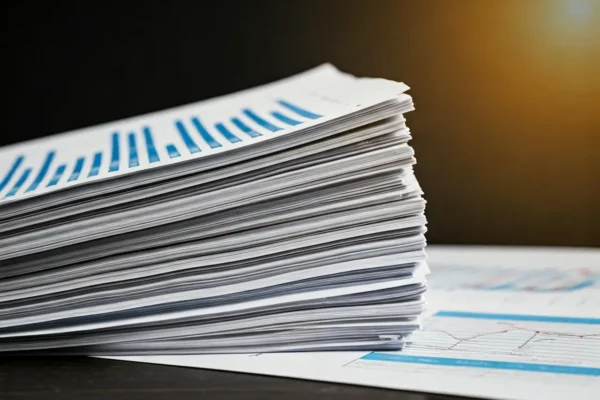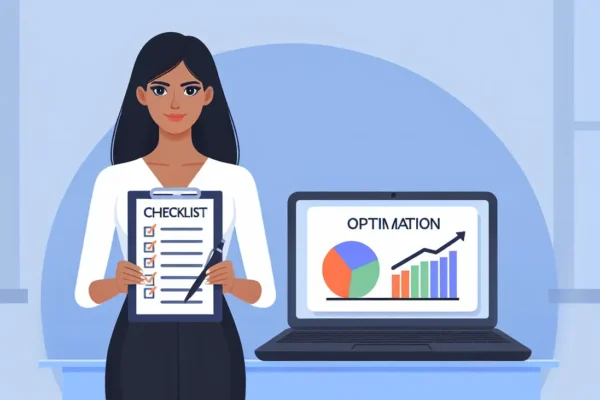In the world of business, debt recovery is a crucial aspect that can significantly impact your company’s financial health. Successfully recovering debts owed to your business not only improves cash flow but also helps you maintain healthier relationships with your clients. In this blog, we’ll explore ten essential strategies for effective business debt recovery, designed to help you navigate this complex process with ease and confidence.
1. Understanding Your Debtors
The first step in successful debt recovery is understanding your debtors. Knowing who owes you money and their financial situation helps you tailor your approach accordingly. Conducting credit checks and researching your debtors’ payment histories can provide valuable insights. This information can help you determine the likelihood of repayment and identify the best strategies for engaging with each debtor.
It’s also crucial to verify your debtors’ identities and ensure that the contact details you have are up-to-date. This avoids potential mix-ups and ensures that your communications reach the right individuals. Understanding your debtors’ financial challenges can also help you develop empathetic and realistic repayment plans, which may improve the likelihood of timely payments. Always remember, the more you know about your debtors, the better you can strategize your recovery efforts.
2. Setting Clear Payment Terms
Clear payment terms should be established from the beginning of your business relationship. This avoids confusion and sets a professional tone for future transactions. Ensure that your invoices clearly state the payment terms, including due dates, penalties for late payments, and any discounts for early payments. This transparency helps in managing expectations and provides legal backing in case of disputes. For instance, outlining penalties for late payments can act as a deterrent and encourage timely settlements.
It’s a good practice to communicate these terms verbally and in writing. Regular reminders and updates can keep the importance of these terms at the forefront of your clients’ minds. By reinforcing the importance of timely payments, you cultivate a business culture that prioritizes financial responsibility and reduces the instances of overdue accounts. This practice not only aids in debt recovery but also fosters a sense of trust and professionalism in your business relationships.
3. Regularly Reviewing Accounts Receivable
Consistently monitoring your accounts receivable ensures you stay on top of outstanding debts and can address issues promptly before they escalate. Regular reviews help you identify patterns in payment behavior, such as habitual late payments, which can then be addressed proactively. This systematic review process allows you to classify debts by their age and prioritize recovery efforts accordingly.
Implementing tools to automate your accounts receivable management can save time and reduce human error. These tools can generate reports, send automated reminders, and help you track the progress of debt recovery. By keeping a close eye on your accounts receivable, you can maintain a healthy cash flow and make informed decisions about your business’s financial strategies. This proactive approach helps prevent debts from becoming unmanageable and ensures smoother recovery processes.
4. Maintaining Open Communication
Maintaining open lines of communication with your debtors can facilitate smoother debt recovery. Friendly reminders and regular updates can prevent misunderstandings and delays. Start by sending gentle reminders a few days before the payment due date, followed by a more formal reminder once the payment is overdue. Effective communication is not just about reminders; it’s also about listening to your debtors’ concerns and finding mutually beneficial solutions.
Sometimes debtors fall behind due to unforeseen circumstances. In such cases, offering flexible payment terms or restructuring the debt can demonstrate your commitment to maintaining a positive relationship. By showing empathy and willingness to work together, you create an environment where debtors feel respected and are more likely to prioritize your payments. Remember, maintaining professionalism and respect throughout your communications can lead to more successful and amicable debt recovery outcomes.
5. Offering Flexible Payment Plans
Offering flexible payment plans can make it easier for debtors to repay what they owe. This can improve your chances of recovering the debt while strengthening client relationships. Tailor these payment plans to the financial situation of your debtors, ensuring the terms are realistic and achievable. For instance, breaking down large debts into smaller, more manageable installments can alleviate the burden on your debtor and increase the likelihood of timely payments.
Flexibility in payment plans should be communicated clearly and transparently to avoid any ambiguity. Outline the terms, deadlines, and any consequences for missed payments explicitly. This approach not only helps in recovery but also enforces a structured method for debt resolution. By offering such options, you demonstrate your understanding and cooperation, which can foster long-term positive relationships with your clients. Implementing flexible payment strategies can thus serve as a bridge to effective debt recovery and ongoing client collaboration.
6. Implementing a Consistent Follow-Up Process
A consistent follow-up process ensures that no debtor is overlooked. Implementing a regular schedule for follow-ups can keep debt recovery on track. Start with initial reminders close to the payment due date, followed by more frequent communication as the delinquency period extends. Consistency in follow-up signals your seriousness about debt recovery and keeps it as a priority for the debtor.
Employing a mix of communication channels—emails, phone calls, and letters—can increase the chances of reaching your debtor. Each follow-up should reiterate the amount due, payment terms, and consequences of non-payment. This ongoing engagement helps maintain debtor awareness and can prompt quicker resolutions. A detailed log of all follow-up attempts is crucial for maintaining accurate records and providing evidence if legal action becomes necessary. Ultimately, a consistent and persistent follow-up process can significantly enhance your debt recovery success.
7. Using Technology to Your Advantage
Leveraging technology can streamline your debt recovery process. Automated reminders and accounting software can make tracking and recovering debts more efficient. Tools like debt collection software can manage and categorize debts, schedule reminders, and even handle initial collection communications. By automating these tasks, you reduce the manual effort involved and minimize the risk of human error.
Online payment portals provide a convenient platform for debtors to make payments, thus increasing the likelihood of timely settlements. These platforms can also generate real-time reports and analytics, helping you track the progress of your recovery efforts. Additionally, integrating communication tools that record and log interactions can provide valuable insights into debtor behavior and the effectiveness of your strategies. Embracing technology not only enhances efficiency but also allows you to handle larger volumes of debt recovery with greater precision and success.
8. Understanding Legal Options
Being aware of your legal options is essential for dealing with uncooperative debtors. Understanding the legal framework around debt recovery ensures you’re prepared to take necessary action when required. Familiarize yourself with local and national laws governing debt collection practices, including the statutes of limitations and permissible collection methods.
Legal measures such as sending formal demand letters or initiating small claims court proceedings can be effective tools. However, they should be used as a last resort after all other avenues have been exhausted. Consulting with a legal professional or debt recovery specialist can provide guidance on the most appropriate course of action. Understanding your legal rights and responsibilities helps protect your business and ensures compliance with regulations, thereby avoiding potential legal pitfalls.
9. Seeking Professional Help When Needed
Sometimes, it may be beneficial to seek professional help. Debt recovery agencies or legal professionals can provide expertise and resources to assist in collecting overdue debts. These professionals have the experience and knowledge to handle complex cases and navigate legal intricacies effectively. Hiring a reputable debt recovery agency can significantly improve your recovery rates and allow you to focus on running your business.
When choosing a professional service, consider their track record, reputation, and the strategies they employ. Transparent communication with the agency about your expectations and the specifics of your debt cases is essential for a successful partnership. Remember that while professional services come at a cost, the potential recovery of significant outstanding debts can outweigh these expenses. Making the right choice can lead to efficient resolution of debt issues and preservation of valuable business relationships.
10. Fostering Long-Term Relationships
Fostering long-term relationships with your clients can ultimately aid in debt recovery. Building trust and goodwill can make clients more willing to settle their debts in a timely manner. Regularly communicating with clients, understanding their business challenges, and providing support whenever possible strengthens these relationships. This proactive engagement can prevent late payments and promote a culture of punctuality and responsibility.
Additionally, offering loyalty incentives or early payment discounts can encourage clients to prioritize your invoices. A client who feels valued and respected is more likely to maintain transparent and timely financial interactions. By focusing on relationship building, you not only improve your debt recovery rates but also enhance your business’s reputation and long-term success. Emphasizing mutual respect and understanding in your client interactions fosters a collaborative environment, which is beneficial for both debt recovery and overall business growth.







